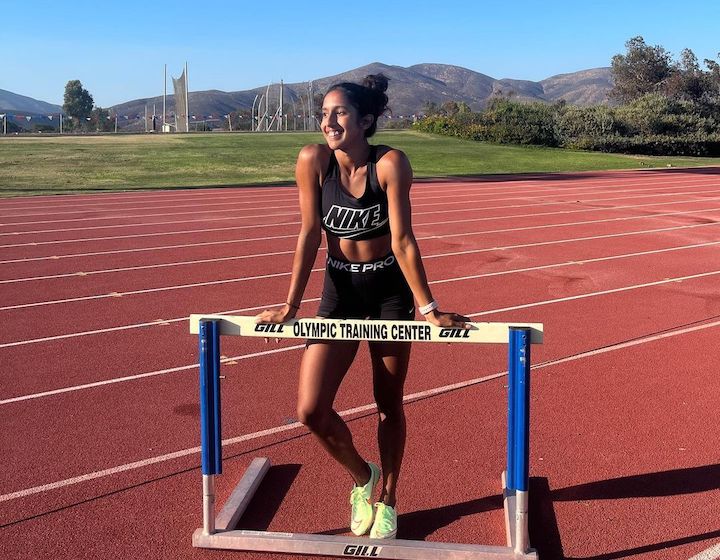
Shanti Pereira, the fastest Southeast Asian woman ever in the 100m and 200m events opens up about the importance of mental health “As much as sports is a physical thing, it’s 90% a mental game”, what her eight tattoos symbolise, and falling back in love with her sport.
Shanti Pereira needs no introduction. But for those who don’t know, she’s the national track and field star, who won the gold medal in the 200-metre race and the silver medal in the 100-metre race at the Asian Games 2023. Her achievements are nothing short of remarkable, especially since she’s only 27 years old. In this exclusive Sassy Mama interview, Shanti pulls back the curtain on life as an athlete, “For a long time, I was really afraid of disappointing the people around me, and obviously the country. What everyone said really affected me and made me scared to approach the start line and show up for training. I was falling out of love with my sport a little bit.” She also spills the tea on how her love story with track and field began, shares what inspired her Olympic tattoo (one of eight tattoos!), who her hero is and the one thing she wishes she could be good at.
Read More: How to Watch the Paris Olympics 2024 in Singapore
Can you tell us something quirky about yourself that people may not know about you?
I believe in astrology to a certain extent. I think that my star sign affects my personality. I’m a Virgo, so I like things to be in a certain order. When I’m organising my room, it has to be perfect, the same goes for when I’m overseas and I’m unpacking my stuff, things have to be put in a certain way!
Do you have any specific routines before a race?
I always make sure I get a cup of espresso before any race. I need to have my coffee, no matter what.
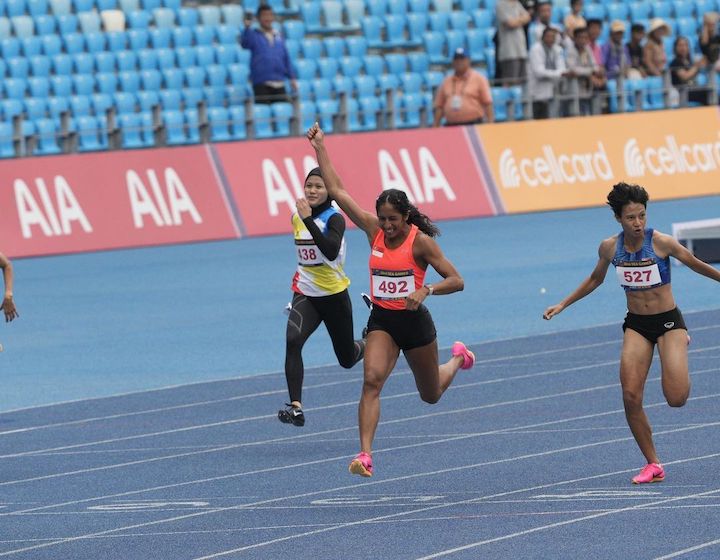
When did you know running was something you were good at and was worth pursuing as a career?
I first started when I was in Primary 3. Watching my older sister compete in track and field made me want to try it out for myself as well. She’s six years older than me and was a track and field athlete competing in youth and junior competitions. I would always follow her to watch her compete both in Singapore and sometimes overseas as well. I grew up watching her, and my family is really big on sports too, so it’s something I grew up with. At some point, everyone in my family was in track and field, even my aunties and uncles!
When I was 9, we had a school sports day, and I competed in the 100 and 400m races. The track and field coach saw me and asked me to join the track and field training, and that’s how it began. I realised I was kind of good at it when I decided to go to Singapore Sports School to pursue my secondary and post-secondary studies. I could see potential and I knew that I wanted to do it for as long as I could.
Did you want to pursue this or did the pressure come from your parents?
It definitely came from me. Sometimes to enjoy something, you have to be good at it. I wasn’t pressured into doing this, and my parents supported me no matter what I chose to do. When I decided to do this, they were all for it and had my back from the start.
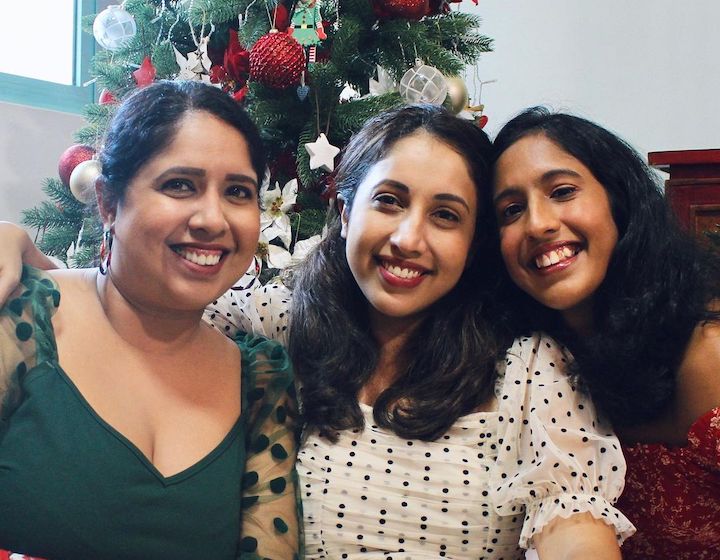
Was there ever competition or rivalry between you and your sister?
Actually, no. When I was just coming up in the sport, she was about to stop her running career. Because she is six years older than me, there was no way we could ever be on the same level. She was always faster and better than me. The best thing that could have happened would be if we could have been on the same relay team together. That would have been really cool, but it never happened.
There’s so much pressure when competing on the national stage. Have you ever struggled with your mental health?
When you’re younger, it’s fun and everything. But once you really get serious about it, that’s where it really gets tough. You’re being put to the test physically and mentally almost every single day. As much as sports is a physical thing, it’s honestly 80% or even 90% a mental game. You have to find certain ways to help you focus, strategise, and deal with winning and losing and how you come back from that.
I think the hardest part for me was really learning to understand that there are a lot of things that are not within my control. For a long time, I was really afraid of disappointment – disappointing myself, people around me, and obviously the country. What everyone said really affected me and made me scared to approach the start line and even show up to training. Because of this, I started falling out of love with my sport a little bit.
It wasn’t until last year that I realised that there are so many things that are not within my control, and that’s the way it is. I had to learn to accept that this is what an athlete’s journey looks like, and honestly, what any journey looks like regardless of what you’re pursuing.
Before that, it was really hard on me. I took people’s words to heart. There was a long period of me coming back constantly crying and feeling so lousy, weak and not good enough to be pursuing such an incredible thing. I definitely had my hard times. Even now as a professional athlete since January, there are a lot of times when I have to take time for self care because it gets a lot at some point. You’re competing so much. It takes a toll. To have to be on all the time is not easy. I need to take that time for myself, take a step back, reflect and really think about everything that’s been going on, so I can reset and refocus on the next thing.

What happens after a loss – how do you recover and bounce back?
My instant reaction is to get angry and question why it didn’t turn out the way that I wanted, especially when I prepared everything I needed to. I usually need 30 minutes to an hour to be upset and just be in that moment. After I have that moment, I reset, and my coach gives me feedback about what happened during the race and what I could have done better. I just have to come back to the mindset that this is just what happens. Sometimes you win, sometimes you lose. It’s the experience that you’ve built over the years that helps you overcome it.
What does self-care look like for you?
Number one is SLEEP. I need my sleep. I need to restore. The best form of recovery is sleep. Number two: Wherever I am in the world, I like to go to a coffee shop and chill there. I enjoy going to the city and finding a nice cafe or bakery to have coffee. I carry a journal with me. If I feel like writing, I’ll write.
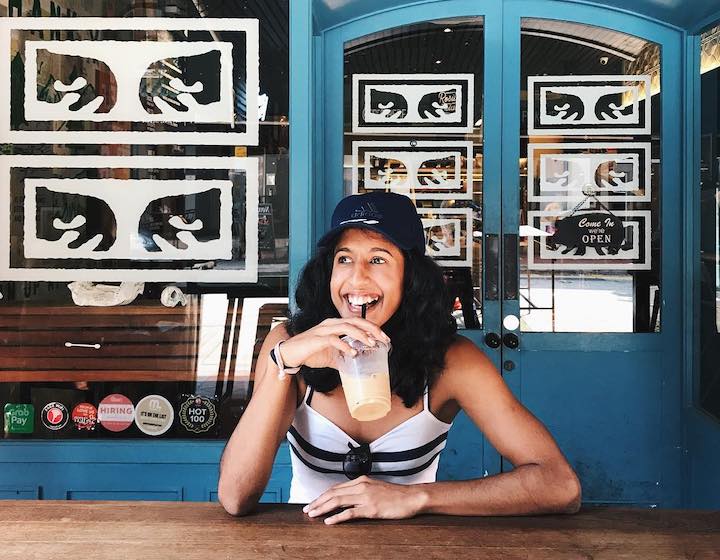
What are three words you would use to describe yourself and why?
Tenacious, enduring and cute
What did you want to do when you grew up before aspiring to be a professional athlete?
I grew up watching chick flicks, a lot of which involve a magazine. So, I’ve always wanted to be a Magazine Editor in Chief.
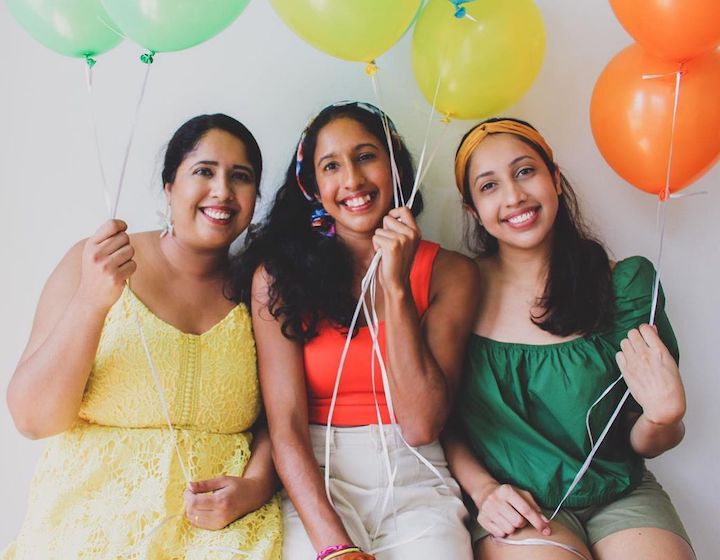
Your sisters wrote Go, Shanti Go!, a children’s book about you that inspires children to dream big and chase their dreams fearlessly. What is your relationship like with your sisters?
They are my second moms and my best friends. I’m the youngest of four, so I’m the baby of the family. They really doted on me when I was younger and even now we share good and bad times together. When I say it’s a team effort every time I race, they’re included. They’re the ones who help me through really tough times and the people I want to share all of my wins with. I’m very, very grateful to have them and my brother, as well. I hear about families who are not super supportive of what their children are doing in their sport, but I didn’t experience that. And for that, I’m very grateful.
There’s a rumour that you have some tattoos?
I have like seven or eight tattoos. The first one I got was a lightning on my ankle to represent my relationship with track and field. On my back, there’s a lady. On my tricep, I have the sun and moon. I didn’t put a meaning on it until after I got it, but it means that you’re in control of your destiny. I got the Olympic tattoo after I did Tokyo in 2021.

I was facing quite a hard time because I had just come out of university, and I didn’t know what I wanted to pursue for a career outside of track. But at the same time, I wasn’t doing very well in track, so I had a bit of an identity crisis. If I’m not good at track and I don’t know what to do, then who am I? The whole journey to get to the frontline of Tokyo was really tough. Coming out of it, I had to do two weeks quarantine. I was by myself, and sometimes I would think so much and just spiral. It didn’t help that I didn’t do my best in Tokyo. I didn’t get a good time or position. Once I came out of that, I got this Olympic tattoo to remember that if I could get through that, I could get through anything.
I have a few more tattoos – one on my waist – that’s a symbol for falling down seven times but standing up eight. And the most recent one is a bird because I really like the artist’s work. And a bird symbolises feeling free and feeling alive. And I have more but in places I can’t show you!
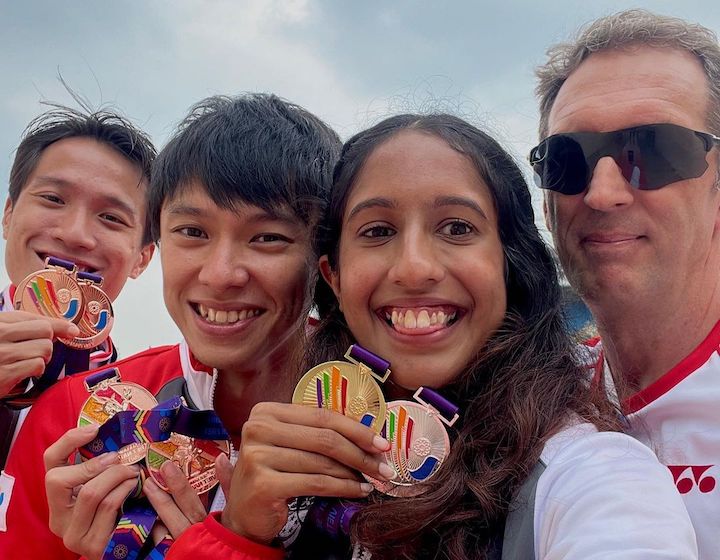
Where do you see yourself five years from now?
I hope to be at the Los Angeles Olympic Games!
How long can you be a professional athlete?
It kind of depends. I used to think that being a professional athlete didn’t have a very long life span. But it actually does. A lot of the professional athletes outside of Singapore do it until they are 35 or 36. You can do it for as long as you think is possible. Age does have a limit for this, but it’s longer than you think!
How would you encourage young people in their journey of discovering who they are and what they’re good at?
To anyone who’s struggling to find something they want to pursue, remember that ultimately it’s your journey. Only you have the power to determine what happens with it. There may be a lot of people who would say ‘No’ or question what you want to do, but once you discover something that gives you so much joy, it doesn’t matter what anyone else says. All that matters is the people who matter to you. Once you find that, just go for it and do whatever makes you happy.
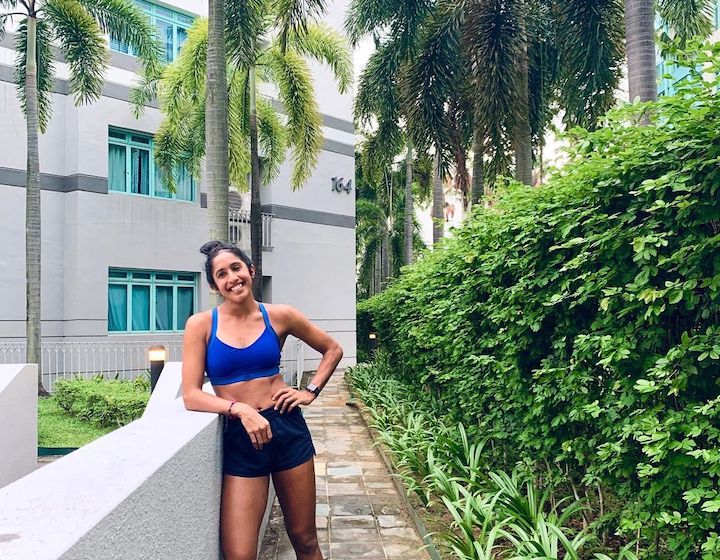
What advice would you give to the parents of aspiring athletes?
I understand that you may want to set a pathway for your children. But be open to your children figuring out what it is they like to do, even if it’s different from what you think it should be or what you did growing up. Instead of seeing your children dread what they do and not be happy, encourage them to be happy and live life to the fullest. It will be a very rewarding feeling for you.
What’s one thing you wish you could be good at?
A lot of things – I’d really love to know how to play an instrument. I would also really want to learn a new language – maybe Portuguese, because my coach is Portuguese.
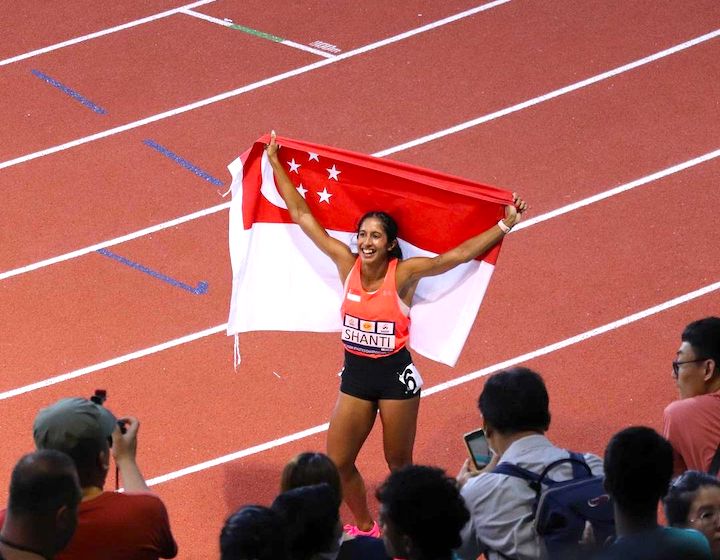
Do you have a secret talent?
You might not call it a talent, but I’m quite good at parallel parking. I’m not stressed when I go to places like Amoy Street, where it’s very narrow and busy.
Quickfire questions:
Favourite Food? Toast Box Curry Chicken
Who is your hero? My mom
Burpees or sit-ups? Burpees – because apparently I’m quite good at them!
The first person you share good news with…My partner
Gold medal or world record? Gold medal because I’m quite far from the world record.
Night in or night out? Night in – 100%
Cannonball into a pool or climb in slowly? Cannonball into a pool!
Guilty pleasure post-race treat? McDonald’s in any part of the world
The way to my heart is…Food
Biggest flaw? I’m too chill, I think.
Favourite place to run for fun? I don’t really run for fun – just joking! East Coast Park – it’s quite nice.
I owe my success to… My coach and my whole team
Thank you for giving us a glimpse into your life, Shanti! We wish you all the best in your future races and hope that your love for your sport will only continue to grow. We can’t wait to see what you’ll achieve next!






 View All
View All




 View All
View All

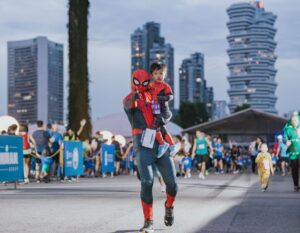


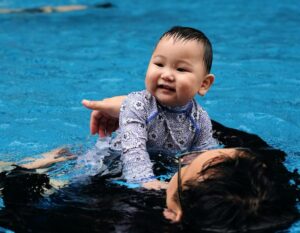


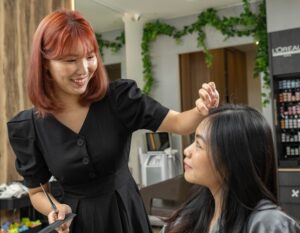

 View All
View All




